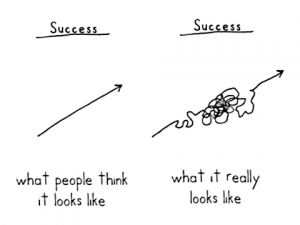In the first of this two-part post, Golden Notebook examines stress — how it negatively impacts our personal brand, and most importantly, what to do about it.

Photo: Pixabay
As a psychologist, I see a lot of stress in the city. We have all seen it. We have all felt it. But what does stress have to do with personal branding? Everything. Stress is one of the biggest obstacles to exuding a strong personal brand. And not only that, it could become part of your personal brand. Think about it. If you’re a big ball of stress most of the time, then that may very well become the defining feature of your brand. In other words, stress has hijacked your personal brand.
Before we jump into what to do about it, let’s start with looking at exactly what we’re dealing with here.
First, stress is an inevitable part of life — there’s no way we can completely avoid or eliminate it. Nor would we want to, as we need it to motivate us and excel in life. That’s right, there’s such a thing as GOOD stress. But too much stress can significantly compromise work performance, quality of life, and have serious health implications, especially if it continues over a long period of time.
It’s a physical, emotional and behavioural reaction to any difficult or demanding situation that we believe challenges our ability to cope. In short, it is what we feel when we think we’ve lost control of events. The last thing on our minds is building and communicating our personal brand.
 We can learn to manage stress, however, so that our lives will be stimulating and challenging, but not overwhelming and out of control. Just like any new skill, building effective stress management takes practice.
We can learn to manage stress, however, so that our lives will be stimulating and challenging, but not overwhelming and out of control. Just like any new skill, building effective stress management takes practice.
Before we get into some exercises for reducing stress, I thought I’d share the following pointers I wrote for my former private practice group. Consider them as “warm ups” to your stress reduction work-out:
1: Identify sources of stress
This first step to managing stress isn’t as easy as it sounds! These “stress triggers” are not always the situations or events around us, and can take the shape of our own thoughts, feelings, and behaviours, including such things as worry, procrastination and avoidance. Sometimes we cannot change the world around us but we can learn to manage ourselves in the face of stressful situations.
2: Take an inventory of current coping habits (both healthy and unhealthy)
What makes you feel calmer and in control in the face of stress? There is no “one right way” to managing personal stress, and most of us have many different coping strategies already — some that work well, and others that may not. An inventory of your current coping responses can help maximize adaptive strategies and avoid or eliminate those that might be damaging or unhelpful in the long run.
Unhealthy habits can provide temporarily reduction in stress, but can also end up causing more damage:
|
|
In Part II, I’ll share proven techniques for reducing stress so you can communicate your personal brand more effectively. Meanwhile, it’s time to warm-up!
![]()